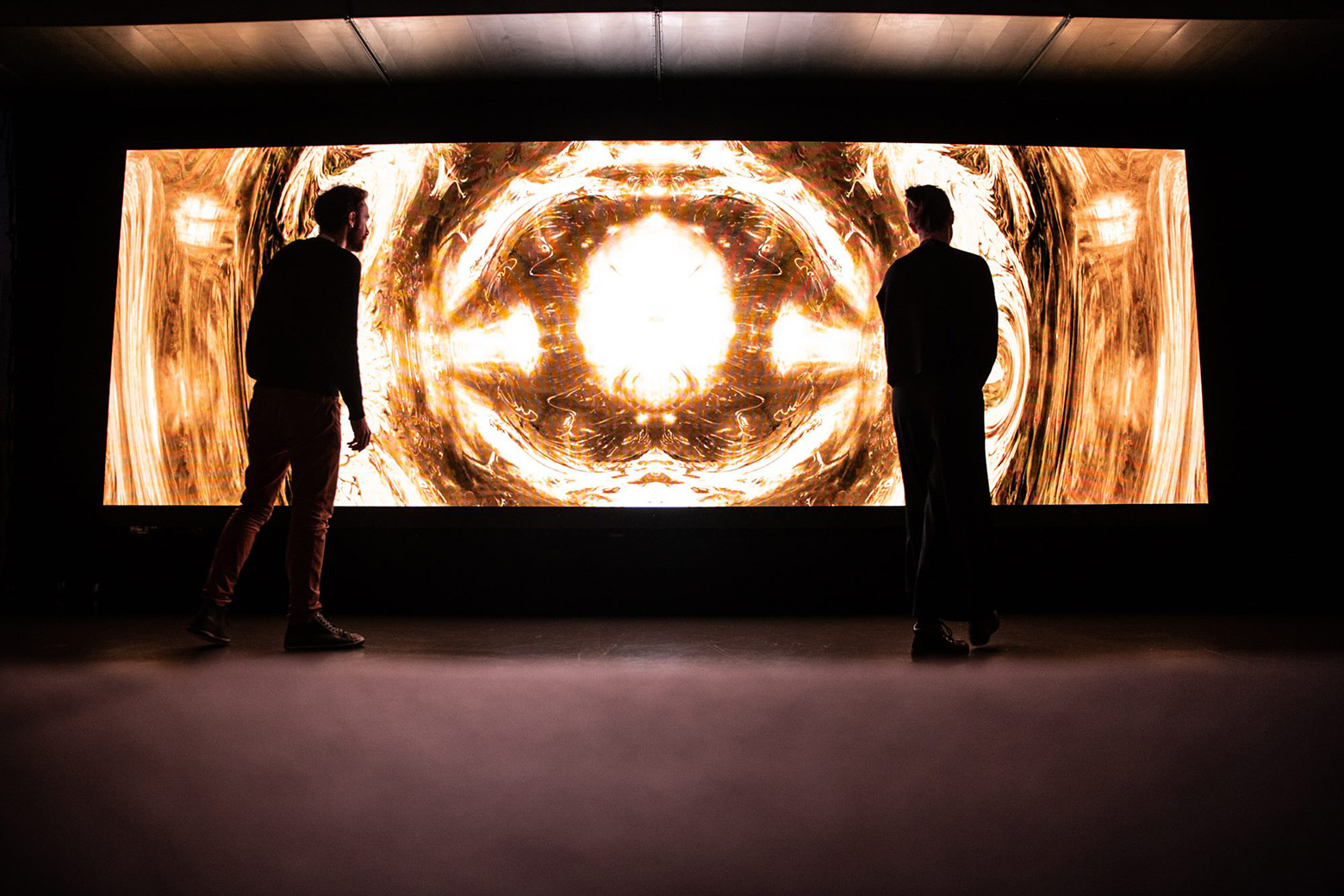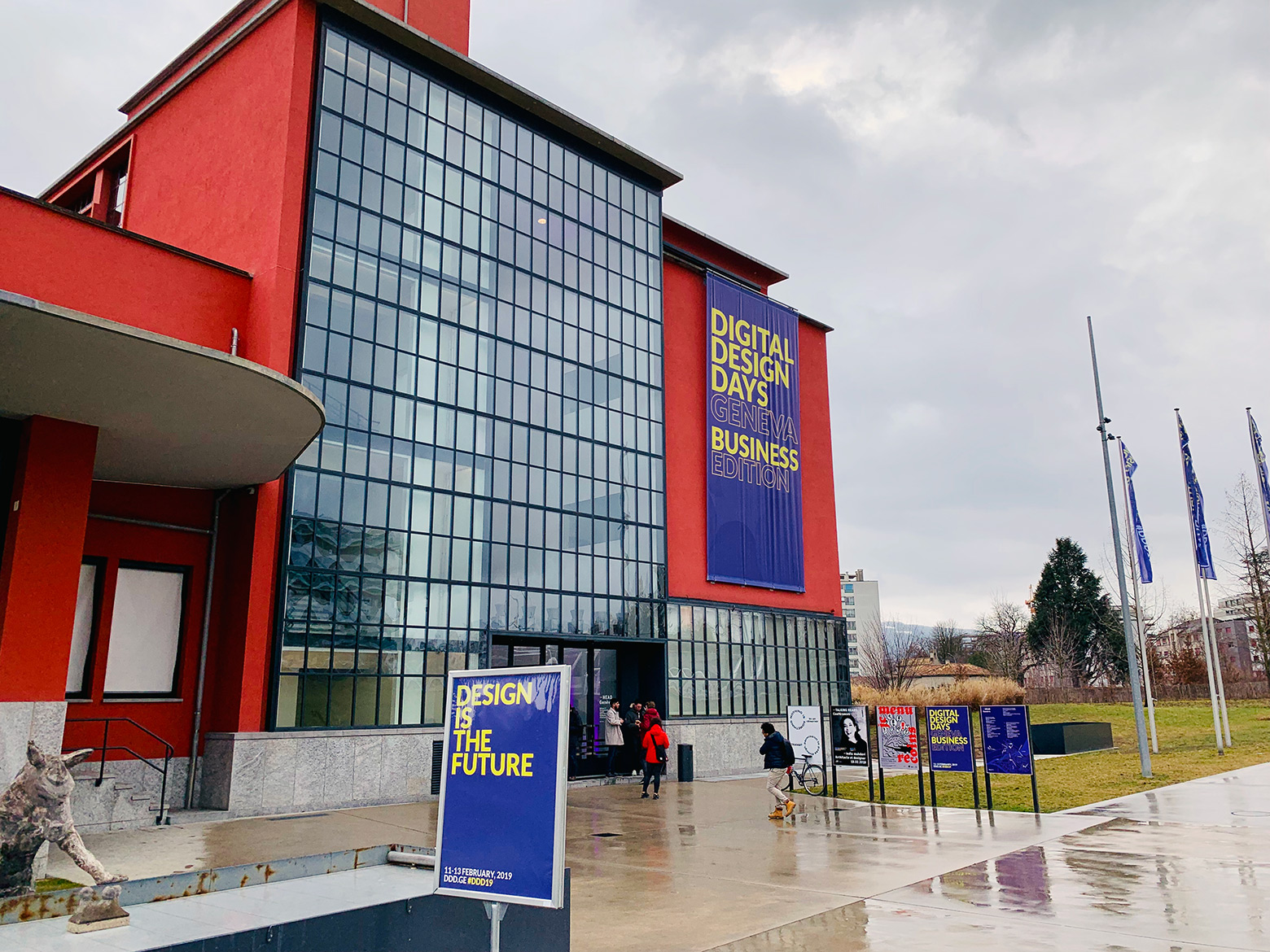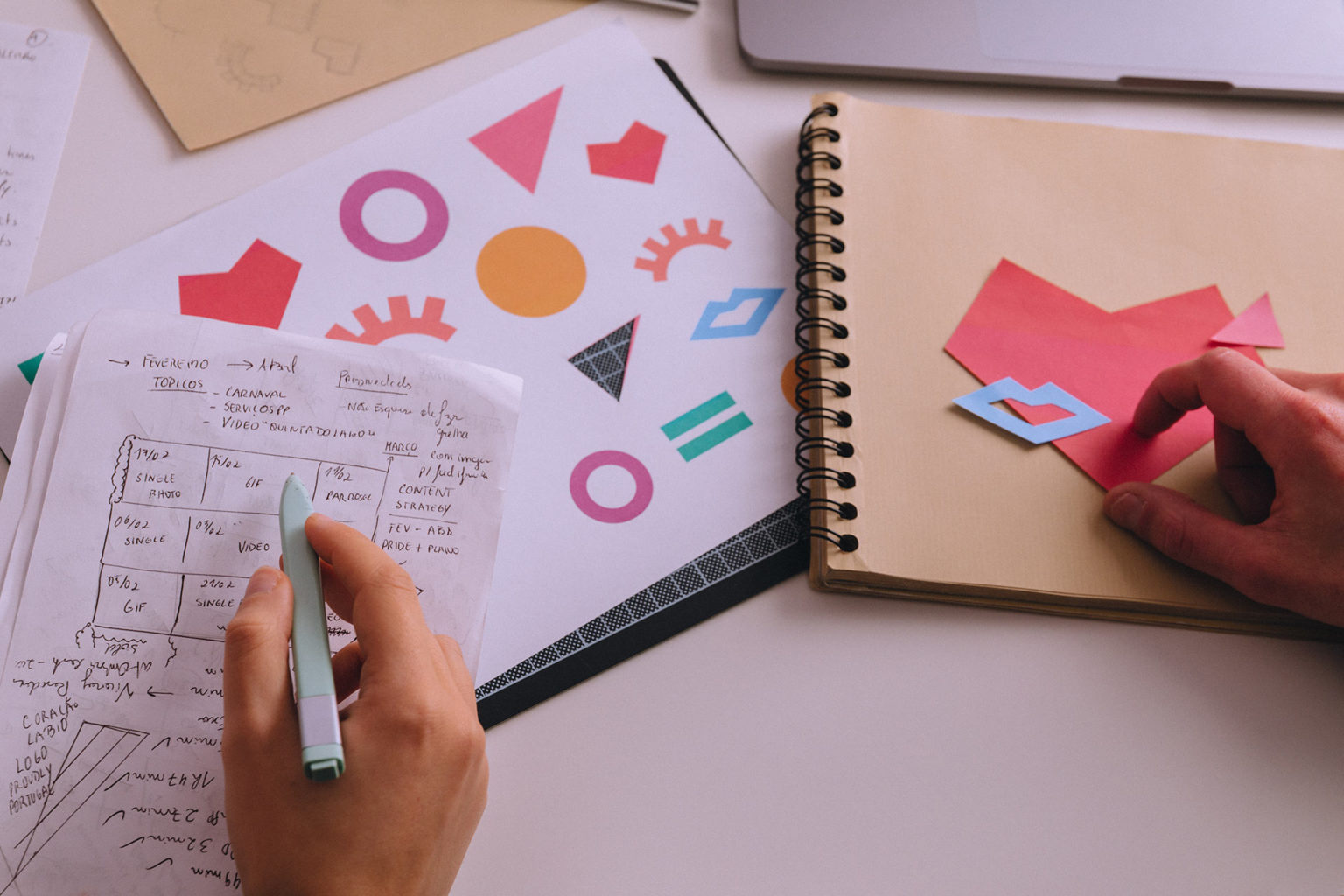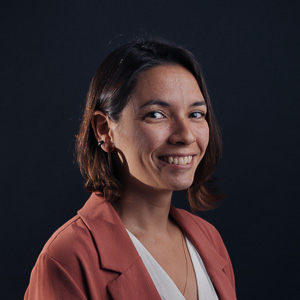Digital Design Days is a flourishing event that started in Milan in 2016 by the hand of Filippo Spiezia and The Meeting Lab. The Buzz Brothers joined the organisation of the latest edition that was held from February 11th to 13th 2019 and took place in Geneva, Switzerland. Kobu was there to check out some of the world’s best creative minds tackling business issues and approaching it through digital design thinking. We learned from keynote speakers, attended workshops, visited the digital installations, managed to save some time for networking and most importantly… Party! Let us talk a bit about what happened there.
Insights from Digital Design Days 2019 – Geneva

Regardless of the fundamental spirit of creativity and innovation that embraces the event, the organisation decided to bring the focus to the business issues at this DDD edition. Few of the main talks were directly business themed but most of the keynote speakers unveiled precious insights about it. Participations revolved around matters like content personalisation, the importance of authenticity in the relation between brands and clients, the emerging role of data and big data, the articulation between a brand’s online and offline voices and much more. We will cover our highlights of the conference below.
1. Techies in the house
VR/AR innovation was a really hot topic and continues to be “the next big thing”. Agencies like Ars Thanea, Live Like and Unit 9 are at the forefront of the R&D in this field, producing some amazing work. Specific areas like entertainment and especially videogames are the ones about to see major innovation coming to the market anytime soon; affordable equipments are being designed to allow perfected on-site match experiences to fans sitting in their couches, while also integrating access to the traditional amenities of an afternoon at the stadium. In the social field, universities and museums are taking advantage of the resources and options provided by this technology to bring culture and information closer to people that otherwise would not be able to access it. 3D recreations of archeological historical sites and educational interactive installations are becoming a much valued option by these institutions that are now using innovative channels to teach about many different matters and convey messages of preservation of cultural heritage.
2. Love for the job
The atmosphere at HEAD-Geneva School of Art & Design was warm and welcoming and we could feel everyone’s joy for being part of the event. The “love for the job” spoke especially loud from four of the speakers as they stood out for their enthusiastic tone sharing projects, visions and passion towards the brands they were addressing.
Mauro Porcini from PepsiCo led a breathtaking talk. He shared the formula to build a 360º experience, online and offline, starting from the emotional, visceral stage of the first impression, to the rational, interactive stage of the experience itself and the evaluation of it, just to end at the most important expressive stage where consumers become either brand ambassadors or brand retractors. By making an interesting analogy between a brand-consumer relation and a love affair, and combining it with several amazing examples of PepsiCo marketing projects around the world, Mauro Porcini was able to transmit in a vivid and dynamic way what a brand must aim at every time a new campaign is set.
Ximena O’Reilly from Nestlé was as enthusiastic when sharing the struggles that such a big company holding so many brands goes through in order to stay relevant and up to date in both realities, online and offline. Some of the brands held by Nestlé are several decades old and have history imprinted in their image which makes the challenge of keeping them fresh even toughest. Packaging design, stores’ layouts, advertising commercials, the company manages to face the challenge of addressing all channels of interaction with the consumer through a consistent message that still leaves room for regional adaptation.
On a much more subtle note but showing equal affection, Eric Klimczak from Uber shared with the audience what his company is up to when thinking about the future of transportation and urban mobility. He stressed the importance of social and environmental accountability that such a big company must take into consideration when designing tomorrow’s smart cities dynamics, revealing that the Uber method for it is through design patterns. By cracking the large amounts of data that the company now has in its possession regarding mobility habits within the Uber functioning model, the company can trace commuting habits and foresee the need for profound change and adaptation that cities will have to go through in the near future.
The automobile industry is the stage for some of the most innovative, eco-friendly, technological projects and the advertising around it requires evermore creative campaigns. In this field, Max Lederer, from Jung von Matt agency, explained the challenges that BMW, the worldly known 100 year old car company, has been bringing to his agency. Moved by a profound respect for BMW’s history and passion for the brand, his agency has been able to come up with out-of-the-box, engaging advertisement campaigns that aim mostly at the environmental concerns of the next generation of consumers. Jung von Matt have been working on ingenious ideas and producing award-winning advertising campaigns that offset the considerable time and money needed to make them alive and put into action.

3. Reasoning with wizards
Chris Do and Joel Pilger had very interesting participations in line with their already famous online contents available through The Futur and RevThink Youtube channels. They both reminded us that the creative work is highly valuable not only in itself but mostly for the consequential profit it represents to the client. Nevertheless, seldom do designers deal with business issues in an objective way, stumbling when it comes to fairly price their work or negotiating conditions with clients. Also, both Chris and Joel stressed the importance of knowing when and how to say “no” to projects that don’t match neither our purpose nor our engagement base value. They also pointed out the importance of exploring market gaps to offer products and services born from our inner genius.
In the strategic field, another three speakers stood very clear about their and their agencies perspective. Daan Klaver stated Build in Amsterdam agency’s 12 rules from which we could understand that they are no longer pitching their work, letting it speaking for itself and for the agency’s character. Build in Amsterdam believes that great work is based in thorough research and smart planning and delivered by strong teamwork and intertwined skills. In the meantime, we must not forget to take restoring power naps! Jonathan Burkett from Code & Theory also approached the internal production processes issue, revealing that his agency is transitioning from the (not so) old three stage waterfall model (discover-design-build) to a much more hands-on dynamics where the discovery phase turns out to become a parallel process of finding a solution while simultaneously testing and iterating. This allows agencies to save time and provides conditions to achieve a much more reliable outcome.
Time saving and results reliability are key within the business thinking mind-frame as Gianluca Brugnoli showed us with his participation. He works at Digital McKinsey, the worldwide consultancy agency, and is leading an internal project that aims to determine the business value of design. He is dedicated to understand and show how design can help to deconstruct and comprehend customers expectations and needs and thus bring valuable insights to the development of emerging and engaging experiences.
4. It’s all about the journey
As with all jobs, success comes with hard work and strong perseverance and that lesson was reinforced at DDD through the testimonials of three speakers. Firstly Dot Lung, the self-called mother of social media dragons, inspired the whole audience with the story of her being this L.A. girl whose dream was to live in Barcelona. She actually did it and now works full-time on what became her passionate expertise niche, social media managing. Capitalising on many years of experience and after working social media for many events and companies, Dot developed what she calls her D.R.A.G.O.N. formula for evergreen content in Instagram, her favourite social media network: Dialogue, Relatability, Authenticity, Giving (value), Opinion, Niche (oriented).
The last day of DDD was particularly inspirational for those seeking role models in the search of their inner drive. Burton Rast from Google delivered the most interesting talk around the journey to find his own purpose. After his younger, rebel years spent submerged in the punk culture, Rast found ground to start endeavouring towards his personal ideals of a more fair and equal society. Having worked at IDEO, Rast had the opportunity to dive into projects with relevant social impact especially in underdeveloped countries. Today, working for Google, Rast strives to design human-centered products and experiences enabled by the Google Assistant with a strong machine learning component.
Filipe Carvalho was the last DDD keynote speaker. Being born in Portugal, Filipe doesn’t want to leave his country. Nevertheless, the unwavering will to succeed in the pursuit of his dream to work with the biggest American film studios brought him his biggest achievements. Filipe put his life on hold for a year in order to dedicate his whole heart, sweat and tears to think and craft a major Main Titles workpiece and cold pitched it to conquer Hollywood. He actually did it and already got an Emmy Award for his works. He now runs his own Foreign Affairs Studio, in Portugal, and collaborates with some of the most important and groundbreaking American film studios. His hard work definitely paid off.
During three intense days in Geneva we could hear and learn from the best professionals in the business. We had a blast, congrats to everyone in the organisation! Through DDD, the organisation is enabling a vibrant gathering of professionals and creating opportunities for attendees to network with experts from different realities. Digital Design Days is definitely defining a great benchmark for events in this industry.
We brought back home some very precious insights and our minds full of new ideas. Stay tuned because we have more contents to share with you!
Digital Design Days 2019 – Business Edition was organised by Filippo Spiezia and The Meeting Lab with Buzz Brothers as partners.
For more information on the event have a look at www.ddd.ge
Transparency disclaimer
Article written by Isabel Evaristo
Editing by Nuno Tenazinha
Credits
- Photos courtesy of Digital Design Days 2019
How do you feel about this article?






